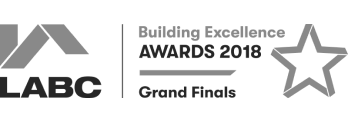What will your job look like a few years from now? Will it even exist?
With AI reshaping entire industries, it’s a fair question. You might notice signs already. Automated tools take over tasks that people once did, and new systems replace old workflows. Also, shifting customer demands are pushing companies to adapt or close down. Even if your role feels secure today, that could soon change.
So, how do you protect your career when the ground beneath it keeps shifting?
You don’t need a crystal ball — you need a plan. These nine strategies to future-proof your career will help you stay relevant, adaptable, and ready for whatever comes next.
1. Shift your mindset
Start with how you think. A fixed mindset clings to what’s known, whereas a growth mindset embraces challenges and change. When you treat uncertainty as an opportunity to learn rather than a threat, you stay agile, even when the future feels murky. The most resilient professionals don’t only cope well with change — they seek it out.
2. Track your wins
Document your career achievements as you go rather than months later when you’re job hunting. Keep a running list of projects, results, and feedback to track progress. It will be helpful when updating your CV, completing application forms, and preparing for interviews. The list will also help you identify your strengths. Don’t rely on memory — rely on evidence.
Tracking your successes is equally important because it can reveal gaps where you can grow or strengthen your skill set.
3. Build genuine relationships
LinkedIn is a valuable career tool, but networking extends beyond connecting on the platform or exchanging business cards. It’s about building and maintaining genuine relationships — people who know what you’re good at and are happy to vouch for you. That means staying in touch, offering help, and showing up for others. Most opportunities come through people, not job ads.
4. Stay current with technology
Even when your job doesn’t seem technical, it’s affected by tech. Learn how emerging tools like AI, automation, and data analytics transform your industry. Take a course, follow credible sources, and experiment with new platforms.
If your company lags behind, don’t wait for permission — upskill yourself. The goal is to stay valuable even when the tools and goalposts change.

5. Invest in your skills
Beyond tech, career insurance is about keeping your core skills sharp. Attend workshops, request training, and volunteer for projects that stretch you. Think beyond your current role and consider what skills are in growing demand across your industry and others. Being adaptable and communicative are essential. These skills will help you succeed on any career path.
6. Think beyond borders
Global experience isn’t reserved for jet-setters. Remote work and international teams are now the standard. Get used to working across time zones and cultures. Additionally, learn about how people conduct business in various locations. Being globally literate gives you an edge — and a much broader set of opportunities when moving into a new role.
7. Follow trends
Keep an eye on what’s changing in your industry. Are specific roles disappearing? Is demand for a new kind of expertise on the rise? Trends won’t give you all the answers, but they’ll help you decide what to learn next or where to steer your career.
8. Keep an open career path
Avoid getting boxed into a role with limited transferability. Identify and strengthen your most portable skills, like leadership, problem-solving, and communication. These skills can serve you across sectors. The broader your toolkit, the easier it is to pivot when needed.
9. Have a contingency plan
“Hope for the best, but plan for the rest” is an excellent mantra for your career. What would you do if you were made redundant tomorrow? Where would you apply for a job? Which skills would you highlight? And what contacts could you reach out to?
Career stability isn’t about holding tight to a single job — it’s about being ready to move forward when it’s time.
Final thoughts
As a Leeds professional, you can’t control how your industry evolves or how fast automation spreads. But you can control how prepared you are. The future of work belongs to those who stay curious, connected, and ready to adapt.



